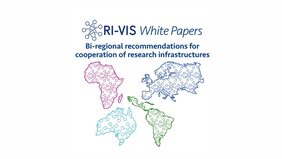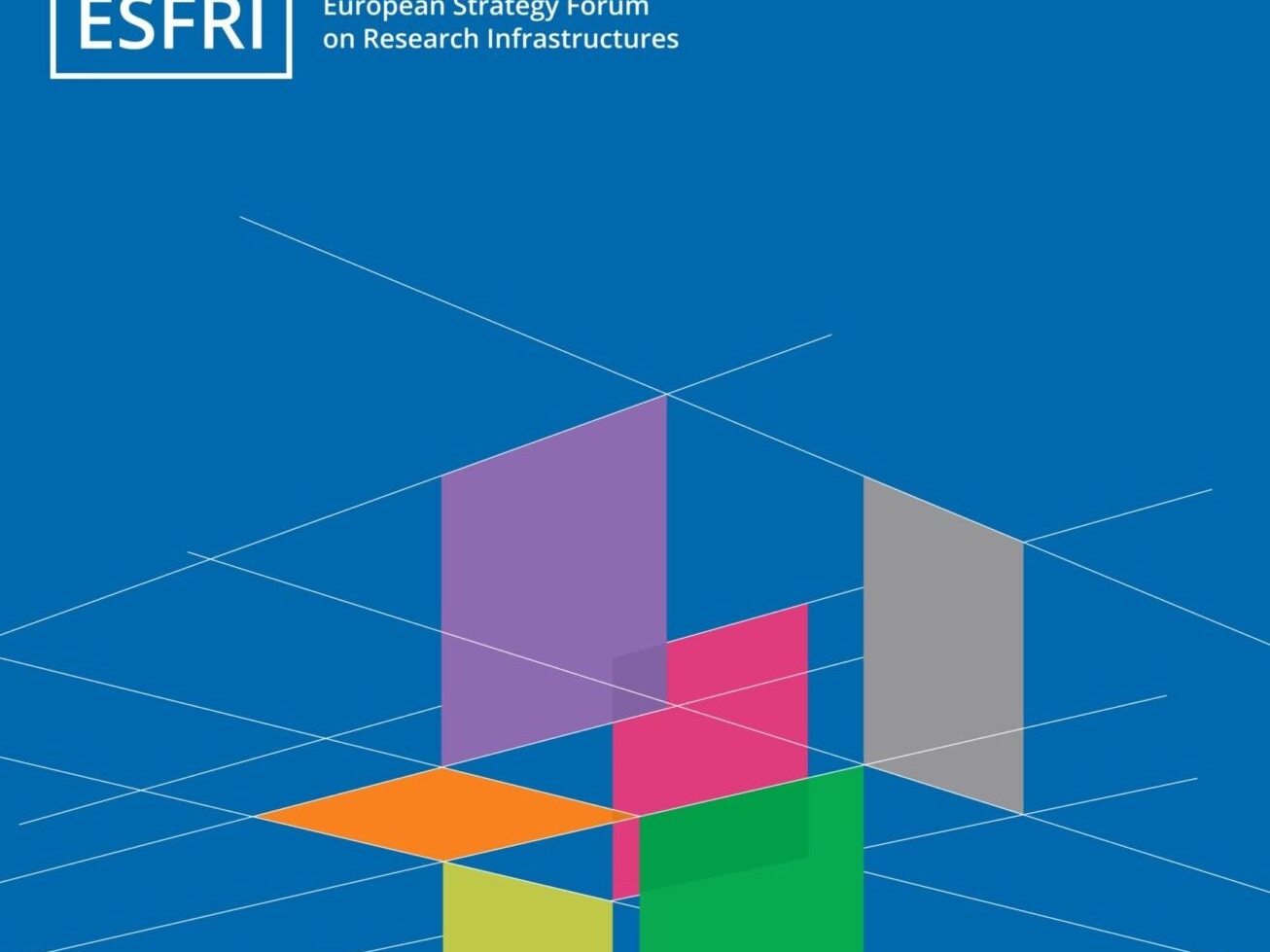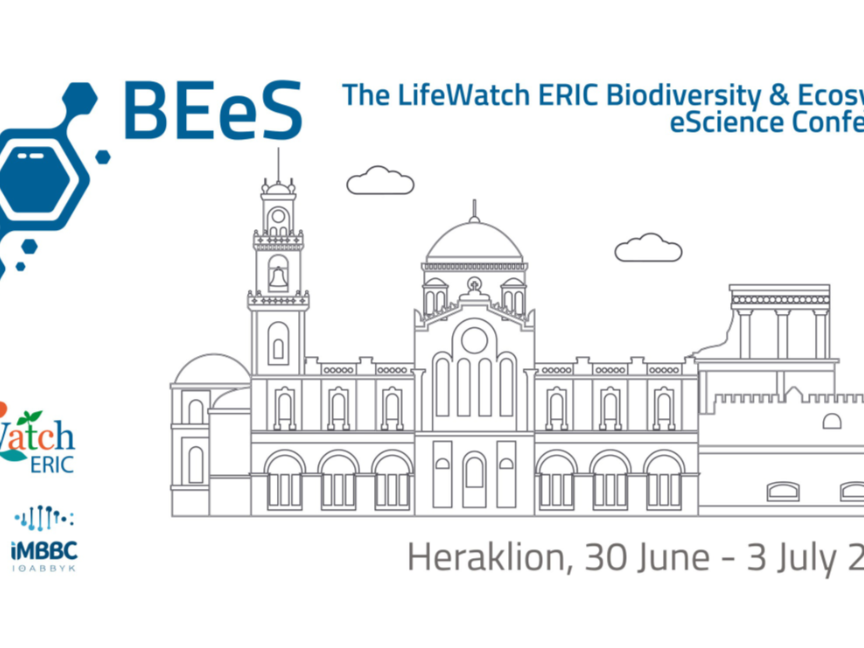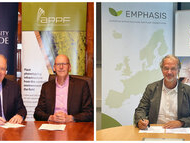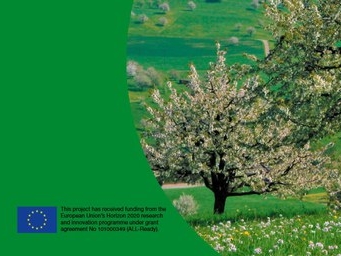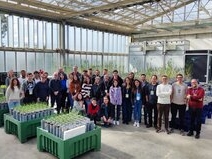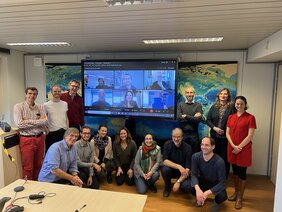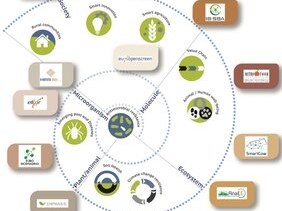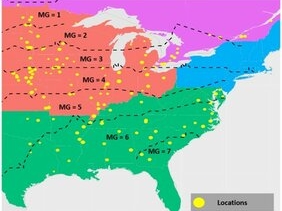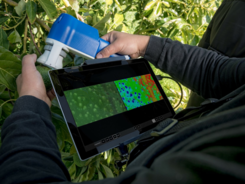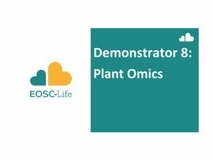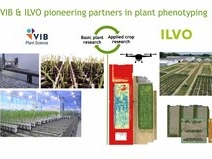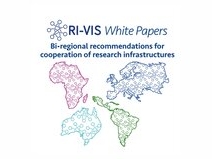International cooperation on the level of research infrastructures is key to addressing major global challenges including climate change, infectious disease, food security and natural disasters. The EU-funded RI-VIS project, a consortium of 13 partners from European research infrastructures, aims to increase the visibility of European research infrastructures and raise awareness in new communities beyond Europe. As part of this goal, RI-VIS has just published three white papers providing region-specific recommendations to funders, policy makers and research infrastructure managers on how to increase international collaboration among research infrastructures. Each white paper focuses on specific regions: (1) African-European, (2) Latin American-European and (3) Australian-European cooperation, respectively.
The papers collate the insights of a total of 21 experts from research infrastructures, policy-makers and relevant governmental institutions from different regions collected through in-depth interviews. Each paper is structured into sections that cover examples of successful collaboration, lessons learned and possible challenges as well as a summary of key recommendations.
Even though many of the recommendations given are specific to the respective regions, some prominent themes emerge in all three white papers. These include issues such as funding, the importance of aligning scientific priorities and mutual benefits. Other key recommendations cover collaboration frameworks, global challenges, access, personal relationships, staff recognition and communication platforms.
December 19, 2025
ESFRI Landmark submission- 2026 roadmap
The EMPHASIS Coordination Office has submitted its proposal for 'Landmark' status in the 2026 ESFRI Roadmap — a big milestone…
December 9, 2025
The Crete Declaration: Uniting Science for One Health
At the BEES Conference in Crete, European research infrastructures united behind the One Health approach, pledging stronger…
November 20, 2025
New publication outlines global vision for plant phenotyping collaboration
A new commentary in The Plant Phenome Journal co-authored by EMPHASIS leadership explores the future role of regional…
November 20, 2025
EMPHASIS Welcomes Dr Susie Robinson as Interim Director General, Effective January 2026
EMPHASIS appoints Dr Susie Robinson as its Interim Director General, effective January 2026, following an international search.…
October 24, 2025
The Flemish Government has officially announced its dedicated support for EMPHASIS ERIC
We are thrilled to share that the government has approved a 'Host Country Premium' of €1.8 million for the first five years of…
October 22, 2024
European Life Science RIs Position Paper on FP10
Driving Innovation and Collaboration: A Strategic Vision for European Life Science Research Infrastructures in Framework…
July 2, 2024
AgroServ’s Second Call for Proposals is Now Open!
We are excited to announce the opening of AgroServ’s second call for proposals. AgroServ provides access to 143 services from…
February 20, 2024
Horizon Europe-funded MICROBES-4-CLIMATE project kicks-off
31 Partners from 13 Countries unite to address climate change risks for biodiversity and for agricultural and forestry…
December 4, 2023
International collaboration targets global food challenges
The memorandum of understanding formalises a commitment to cooperation in enabling crop improvement via advancements in plant…
November 20, 2023
ALL-Ready – The EU Agroecology Living Lab and Research Infrastructure Network
The ALL-Ready pilot network is essentially a small-scale testbed to experiment, and to provide feedback on the various tools,…
September 20, 2023
AgroServ – First Call for Proposals Open to Scientists from Academia and the Industry
The Horizon Europe project AgroServ, with the participation of EMPHASIS, is pleased to announce the official launch of its…
May 8, 2023
EMPHASIS training on affordable phenotyping in Matera-Metaponto, Italy
It enabled an in depth discussion between the course participants and plant phenotyping experts from EMPHASIS member countries.
March 16, 2023
SusCrop / FoPD video contest on sustainable crop production
National funders in the European Research Area Network on Sustainable Crop Production (SusCrop ERA-net) opened the video…
February 22, 2023
IPPS Research Topic in frontiers
IPPS 2022 - Plant Phenotyping for a Sustainable Future: IPPN, together with WUR, has launched a research theme on borders.
February 15, 2023
Call for contributions to a special Issue: Phenotyping functional traits in plants
Plant phenotyping has seen rapid development in methods and technologies over recent decade leading to the establishment of…
February 14, 2023
European research and innovation programmes 2014-2027
The public consultation on the EU’s Horizon research and innovation programmes 2014-2027 will be open until 23 February. This…
January 17, 2023
EMPHASIS Implementation Project „EMPHASIS-GO” has started
Once operational, EMPHASIS is intend to provide multiple high-level services for the plant phenotyping and related communities…
November 30, 2022
Phenet
Europe urgently needs to find pathways towards agroecological transition of agroecosystems in support to food security, climate…
June 29, 2022
New book: Advances in plant phenotyping for more sustainable crop production
The book reviews the wealth of research on advances in plant phenotyping to meet this challenge, including new technologies…
March 7, 2022
EMPHASIS contributes to European project AI4Life on Artificial Intelligence
Machine learning (ML) has enabled and accelerated frontier research in the life sciences, but democratised access to such…
March 1, 2022
EMPHASIS contributes to European project AgroServ on Agroecology
The Horizon Europe project AgroServ, led by AnaEE and CNRS, gathers more than 70 partners and has recently been granted of 15M€…
December 6, 2021
EOSC-Life: Workflowhub
September 15, 2021
Opinion Paper: EU Consortium calls for “Designing the Crops for the Future; The CropBooster Program”
The authors call for international action and propose a pan-European research and innovation initiative, the CropBooster…
September 10, 2021
MLCAS2021 launches Crop Yield Prediction Challenge
In this competition, you will utilize a dataset consisting of 103,365 performance records over 13 years and 150 locations with…
August 19, 2021
New Special Issue in Plant Phenomics
Plant Phenomics, a Science Partner Journal, is now accepting submissions for a special issue titled Advances in Proximal…
June 23, 2021
Greece: Intelligent system to monitor health of olive groves
Verticillium wilt is a major problem for olive growth and very difficult to detect at early stages of infestation. The project…
June 23, 2021
Austria: New high-throughput phenotyping platform at Vienna BioCenter Core Facilities (VBCF)
The PHENOPlant phenotyping platform is designed for non-invasive, morphometric and physiological high-throughput phenotyping of…
June 14, 2021
Sweden: A virtual tour of the Biotron at SLU Alnarp
On 27 May 2021, NordPlant organized a virtual tour of the Biotron at SLU Alnarp. The Biotron is a facility for modern plant…
May 4, 2021
Italy: Successful first Phen-Italy call for access to plant phenotyping infrastructures
Great success of the Phen-Italy call for access to the Italian plant phenotyping infrastructures! More than twenty applications…
April 12, 2021
Greece: Lab-in-the-field, multi-spectral imaging technology for early warning of plant stress and pathologies
The Mediterranean Agronomic Institute of Chania, the Hellenic Agricultural Organization Dimitra and QCELL, the inventor of…
April 6, 2021
New tools for data sharing in plant research
Three new data management tools designed to help plant researchers with data analysis, visualisation and integration following…
March 25, 2021
Italy: Phen-Italy launches first call for access to national phenotyping infrastructures
The Italian Plant Phenotyping Network Phen-Italy has launched a call to fund access to plant phenotyping participating…
March 25, 2021
EOSC-Life publishes midterm Achievements Brochure
The European Open Science Cloud project EOSC-Life, which EMPHASIS participates in, has just published a digital brochure…
February 16, 2021
Belgium: VIB and ILVO jointly obtain regional funding to establish the ‘EMPHASIS-Belgium’ consortium as national node of EMPHASIS
With the ambition of “phenotyping future crops”, a new consortium - EMPHASIS-Belgium - has been established as the Belgian node…
February 10, 2021
Plant Phenotyping for a Sustainable Future
Contributions to the special issue are welcome and may include research papers as well as review articles. Authors should…
February 5, 2021
RI-VIS Publishes White Paper on African-European Research Infrastructure Cooperation
A team of European research infrastructures, led by EMPHASIS, has published a White Paper entitled "Recommendations towards…
February 4, 2021
What kind of bioinformatics do plant scientists need?
Your input is needed: the German Network for Bioinformatics Infrastructure de.NBI would really appreciate if you could take a…
January 29, 2021
Special Issue: “From Phenotyping to Phenomics—Techniques for Exploring Plant Traits and Diversity”
This Special Issue aims to bring together a range of research papers that cover plant phenotyping at large-scale from hundreds…
January 6, 2021
Belgium: VIB acquires CropDesign site from BASF and launches its first agricultural biotechnology incubator
VIB, a leading life sciences institute in Flanders, has signed an agreement with BASF to acquire its CropDesign site in Nevele,…
Get involved
Lorem ipsum dolor sit amet, consectetur adipiscing elit, sed do eiusmod tempor incididunt ut labore et dolore magna aliqua.
